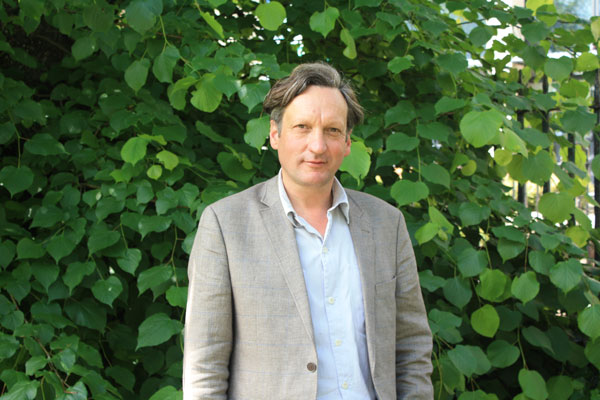
Adrian Steele at Chapel Farm in Pershore chose to go organic to help combat herbicide resistance, specifically blackgrass, on the arable family farm, whilst maintaining viability. He said; “We had to reintroduce livestock and rotations on to the farm and it seemed the most profitable way to do this was to go organic”. As well as these low-input techniques Adrian uses up to date innovative machinery and techniques to help manage weeds on his farm. A good understanding of his environment and the soils he farms is also essential to effective management and through the Soil Association he found the research and support to aid his discoveries.
“The Soil Association is a progressive organisation which is full of ideas. The Duchy Future Farming scheme champions on farm field labs and collaboration between farmers and researchers, giving us access to practical and scientific solutions. The network of farmers involved in the programme is also useful for working out new ways to solve the problems that organic farmers face”. Mr Steele is in contact with various members of the programme and benefits from seeing new technology, revitalised techniques and discussion of the best ways to manage an organic farm.
40% of the Steele’s 500 ha (1,200 acre) enterprise is put to cereals each year. Adrian grows crops solely for human consumption, rotating milling wheat, oats, spelt, rye and biscuit wheat. With such a specific product he needs to maximise the productivity of the land and the nutrient quality of the crop to meet market specifications such as protein content.
“Of course the number one technique has to be crop rotation” he explains. To create the necessary soil fertility he uses a three year mixed species ley of 2 white clover varieties, 2 timothy grasses, 2 rye grasses and yellow trefoil. These are grazed in the first year by a sheep flock and then by dairy followers in the second year. Nutrients are provided by farmyard manure from strawed cattle over-wintering yards and from mushroom and green waste compost.
Weed control begins with planting using a combination drill in mid-October. Adrian uses a 4m drill to plant in rows 15cm apart that are mapped out by the GPS System on the tractor. This allows for greater precision and monitoring. Soil compaction is kept to a minimum using tram lines. The gaps between the seedlings allow just enough space to drive a camera operated inter row harrow without disrupting the crop or affecting the soil structure too much. With heavy ground a spring tined weeder can’t be used too often, so the next stage of weed control is unique to Chapel Farm.
To combat the ones that get away Mr Steele uses a prototype machine based on a series of flymos on a toolbar powered by a spearhead hedge cutter motor. The hydraulic system powers rotary knives held above the crop on a tractor front end loader. Adrian is able to top the weeds without touching the crop below, preventing growth and seed dispersion and removing competition for a healthy wheat crop. This is the second year he has used this technique and so far he has seen positive results.
Talking about his involvement with the Soil Association Mr Steele said; “The Soil Association is a meeting place for consumers, producers, processors and academics. It is a progressive organisation, always full of ideas and always challenging the way you think. You have to have this connection when you are out on your own farm. Plus, as a Soil Association licensee, I feel that I am contributing to the campaigning – for the environment and for the future.”
